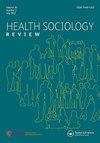受教育程度是否会影响政治倾向与对《平价医疗法案》的看法之间的关系?
IF 2.5
2区 医学
Q2 HEALTH POLICY & SERVICES
引用次数: 0
摘要
研究表明,政治取向和受教育程度在塑造人们对许多社会问题的态度方面发挥着重要作用。虽然人们观察到对2010年《患者保护和平价医疗法案》(ACA)的态度存在政治差异,但很少有人探讨教育对这种关系的影响。传统观点认为,教育对态度有自由化的影响,但实证研究并不总是支持这一假设。我们研究了教育、政治取向(包括对前总统奥巴马的态度)和对ACA的态度之间的关系,使用了2014年皮尤研究中心四次调查中的美国成年人样本。我们发现,当教育被独立考虑时,受教育程度较高的个人不赞成ACA的几率较低,这表明受教育程度具有开放公众舆论对立法的影响。然而,当考虑到受教育程度和政治取向之间的相互作用时,我们发现,与受教育程度较低的政治同龄人相比,受教育程度较高的共和党人、保守派和对前总统奥巴马持负面看法的人实际上不赞成ACA的几率更大。因此,总体而言,更高的教育程度似乎强化了政治取向对ACA态度的影响。本文章由计算机程序翻译,如有差异,请以英文原文为准。
Does educational attainment influence the relationship between political orientation and opinions toward the Affordable Care Act?
ABSTRACT Research shows political orientation and educational attainment play important roles in shaping attitudes toward many social issues. While political differences in attitudes toward the 2010 Patient Protection and Affordable Care Act (ACA) have been observed, few have explored the effects of education on this relationship. Conventional wisdom suggests education has a liberalising effect on attitudes, yet empirical research does not always support this assumption. We examine the relationship between education, political orientation (including attitudes toward former President Obama), and attitudes toward the ACA using a sample of U.S. adults from four 2014 Pew Research Center surveys. We find that when education is considered independently, individuals with more education have lower odds of disapproving of the ACA, suggesting that educational attainment has the effect of liberalising public opinion toward the legislation. Nevertheless, when an interaction effect between educational attainment and political orientation is considered, we find that with more education, Republicans, conservatives, and those with negative perceptions of former President Obama actually have greater odds of disapproving of the ACA compared to their political peers with less education. Thus, overall, greater educational attainment appears to reinforce the effects of political orientation on attitudes toward the ACA.
求助全文
通过发布文献求助,成功后即可免费获取论文全文。
去求助
来源期刊

Health Sociology Review
Multiple-
CiteScore
7.50
自引率
0.00%
发文量
14
期刊介绍:
An international, scholarly peer-reviewed journal, Health Sociology Review explores the contribution of sociology and sociological research methods to understanding health and illness; to health policy, promotion and practice; and to equity, social justice, social policy and social work. Health Sociology Review is published in association with The Australian Sociological Association (TASA) under the editorship of Eileen Willis. Health Sociology Review publishes original theoretical and research articles, literature reviews, special issues, symposia, commentaries and book reviews.
 求助内容:
求助内容: 应助结果提醒方式:
应助结果提醒方式:


